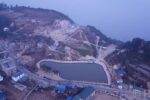The outbreak of coronavirus has worsened the country’s capacity to eliminate poverty. It has, in fact, adversely affected the poor communities, which have been facing challenging socio-economic and livelihood consequences.
One consequence of this economic depression is seen in the increase in pressure on prices.
The pandemic has had an impact on both fragile and developed economies, leaving negative effects on agricultural activities, tourism, trade and industry, and the production sector.
Moreover, fear is leaving people without jobs.
Talking about the economy, we often refer to it as the state or a country or region in terms of production and consumption of goods and services and the supply of money.
The COVID-19 has caused fluctuations globally which has indeed become a concern to economists as well as the normal people.
The core focus must be on full employment of the resources, public investment in various sectors, effective wage policy and collective bargaining which can further help to stimulate the recovery.
The pandemic has created negative impacts on the economy and has shown an adverse effect on low-income houses and small businesses. The way it has imperiled the progress of eradicating poverty cannot be disregarded. The spread has left businesses with counting costs.
The global economy has suffered immensely and has caused the global financial crisis.
According to the IMF report, global growth is projected at -4.9% in 2020, worse than what the trend was even during the financial scarcity in various countries (2008-2009).
Similarly, the global inflation rate in 2020 is 2.99% and is expected to rise to 3.29% by early 2021.
Likewise, the COVID-19 pandemic has created countless health, economic and financial challenges. The price of risk assets has collapsed and the market has spiked up.
Effects such as balance sheet constraints and deterioration in market liquidity have been highly seen all over the world.
Even various financial and fiscal policies are unable to stabilize the market. Problems like risks to the investors, high level of debts to the borrower, refinancing risks and dry markets are seen in various countries.
The stock markets are affected hence affecting the value of individual saving accounts.
Many people have lost their jobs and unemployment rates have risen in turn affecting the whole economy.
The outcomes of the infection have caused economic inequalities and many problems we will be facing in the next decade will be more severe than what we are facing today.
James Manyika, Chairman of McKinsey Global Institute, remarks: “The world after Covid-19 unlikely to return to the world that was”.
However, there are still some signals shown for the global economic recovery.
Various financial plans are policies that have been formulated to save the lives of the people and prevent health crises from turning into a deep long-lasting slump.
The digital economy and rise in digital activities, for instance, remote working and delivery services are accelerating the economy slowly.
In addition to that providing low-cost vaccines globally and to support the countries with limited resources. Furthermore, after fulfilling the key priority, i.e. spending on the health sector, the next step could be recovering the economy.
Policymakers have thought of achieving the goal by investing in infrastructures, research and applying the measures which can stabilize income and consumption, improving unemployment and strengthening the production.
The core focus must be on full employment of the resources, public investment in various sectors, effective wage policy and collective bargaining which can further help to stimulate the recovery.
In many countries, the central banks have decreased interest rates which makes borrowing cheaper in order to boost the economy.
The digital economy and rise in digital activities, for instance, remote working and delivery services are accelerating the economy slowly.
The COVID-19 has brought alarming effects which will also bring long term effects on the economy.
But we need to have collective actions to build the economy to bring economic growth and prosperity.
History has shown that what we do at a crisis can shape our tomorrow. Hence the choice is ours.









Comment